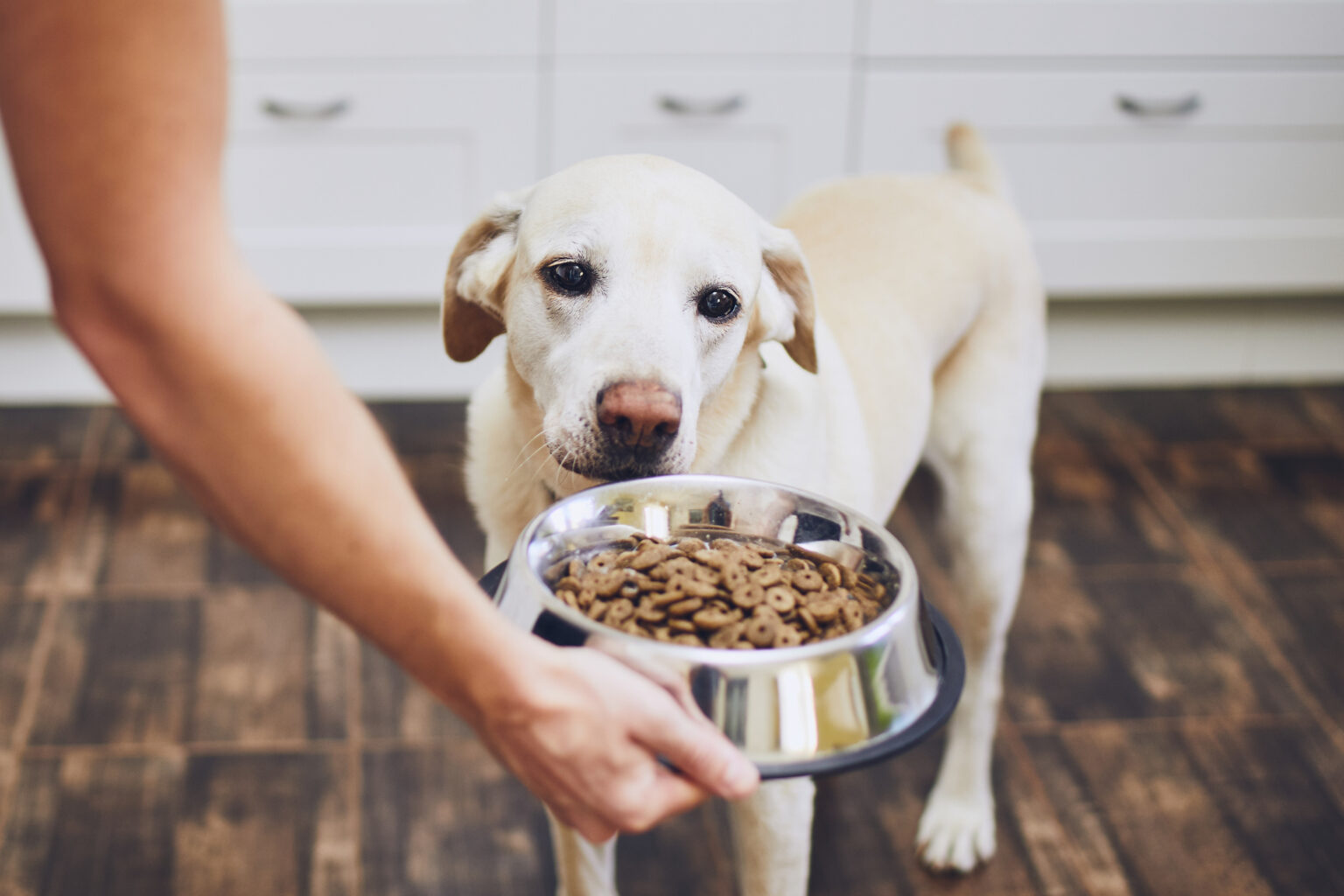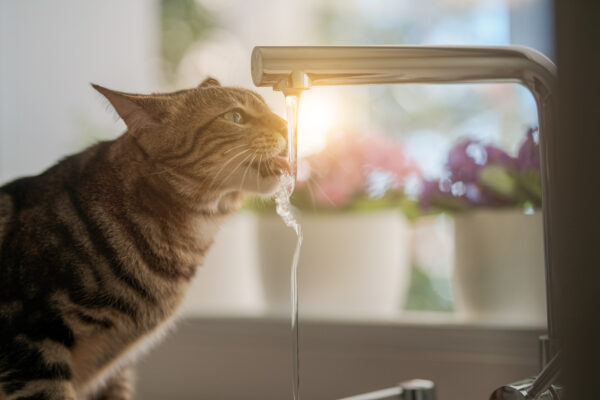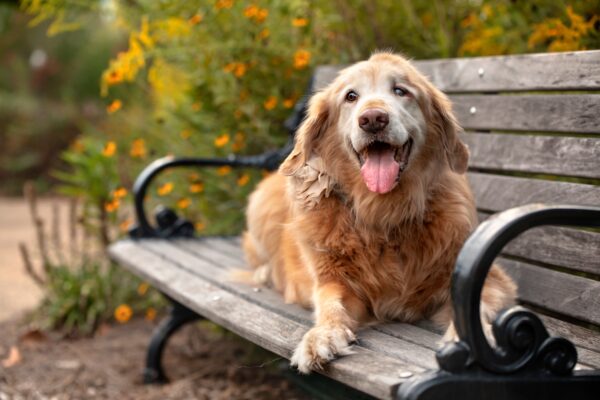Complete senior pet foods are created with your pet’s life stage in mind, and tailored to ensure your dog is getting all the nutrients required to promote a happy, healthy life. As older pets’ nutritional requirements can change, transitioning to a senior or mature formula when your pet reaches a certain age may be beneficial. Here’s why.
When should I switch my dog to senior food?
The answer to this question will depend very much on the breed and health of the dog. Smaller dogs tend to mature faster and, after reaching maturity, begin to age more slowly. A little dog such as a toy poodle, terrier or Chihuahua isn’t considered senior until much later than a larger breed, (maybe 10 or 12 years old), and the giant breeds are considered “senior citizens” at 5 or 6. As a general rule, most vets consider a dog of 7 or 8 years and older to be a senior.
As dogs age, their health and stamina slowly decline. Their bodies lose the ability to repair themselves and maintain normal body functions, and they struggle to adapt to the stresses and changes in their environment. In addition, around age 7 for most dogs, and age 5 for giant breed dogs, metabolism slows down and the dog requires fewer calories (although some require more if they have digestion problems).
Is changing to a senior formula necessary?
While senior dog food may help dogs to live happier and healthier lives, they are not necessarily the right choice for an older dog with health problems. If your older dog has specific health problems (such as failing kidneys, diabetes or gut issues) it will benefit from a diet that caters specifically to that problem, and your vet will be able to advise you in these cases.
Routine veterinary exams and blood testing can help determine what diet is best for your older dog, and since each pet food manufacturer has a slightly different understanding of “senior”, the age at which you change to senior food will depend largely on the brand you choose.
What makes a good senior dog food?
An older dog will need a complete, balanced diet that is lower in calories, higher in fibre and has adequate protein and fat. For some older dogs, you can continue to feed their regular food, but in a smaller quantity. Specially formulated senior diets are lower in calories and help to create a feeling of fullness. If your dog has significantly decreased kidney function, then a diet that is lower in protein will lower the workload for the kidneys. Lower fat usually translates to lower calories; so many senior diets have a fat level of around 8 to 12%. Older dogs are more prone to develop constipation, so senior dog foods are higher in fibre at around 3 to 5%. If your senior dog eats dry food, it will help to control tartar build-up and reduce gum disease.
What is the best food for my senior dog?
Below are a variety of premium senior/mature dog foods which we recommend.
Canine Choice Senior Light Dog Food – Lamb
- This vet recipe has the right balance of protein and energy for an older dog – as senior dogs need just enough, but not too much high-quality meat to keep them healthy and trim – so each kibble contains 45% lamb, as recommended by vets.
- It also contains natural, health-boosting plant foods to help safeguard your dog against illnesses and take care of digestion, skin, coat, joint and bone health, including cranberry, rosehip, sweet potato, apple, chamomile as well as Omega 3+6 fatty acids, prebiotics and probiotics.
- As it has L-carnitine, it helps your dog’s body control its ratio of fat to muscle, avoiding excess weight gain (very clever!).
Lily’s Kitchen Adult 8+ Gluten-Free Dog Food – Scottish Salmon & Trout
- Suitable for adult dogs aged seven years and up
- Made from real meat and freshly prepared fish
- With vegetable fibre and prebiotics, great for aiding digestion
- Contains vitamins and botanical herbs to support healthy organs
- With glucosamine to maintain supple joints for an active life
- Seaweed and salmon oil help to keep dogs’ cognitive function sharp
Hill’s Science Plan Mature Adult 7+ Active Longevity – Chicken
- A complete mix to support your dog’s joints
- Glucosamine and chondroitin reduce inflammation and repair cartilage
- The right balance of sodium and phosphorous to keep vital organs healthy
- Highly digestible ingredients for maximum absorption
Royal Canin Consult Mature Dog Food
- Contains a selection of nutrients that help support vital function in ageing dogs
- Has a skin barrier patented complex to support the barrier effect of the skin
- Is a specific balanced formulation to help preserve muscle mass with age
- With nutrients chosen to support a balanced intestinal flora and digestive transit
Can I still feed my senior dog their adult food?
In general, if your senior dog has no medical problems, is not overweight, and is active, your dog may remain on the adult diet it is used to. If you have questions regarding which food to feed your senior dog, it’s always a good idea to contact your vet.
Should I give my senior dog supplements?
Some older dogs with special nutritional needs may benefit from dog supplements. For instance, a high percentage of older dogs suffer from arthritis and can benefit from supplements containing chondroitin and glucosamine, such as YuMOVE Joint Care, which combined with a weight control diet and the proper exercise plan can offer great additional support.
However, dog supplements are usually only recommended if your dog is not receiving the essential nutrients through their food, which can occur if your dog is not eating a complete or balanced diet. A supplement may also benefit older animals with a health condition or poor appetite, potentially causing a deficiency in vitamins and minerals. Always talk to your vet to determine if (and which) supplements may be beneficial for your dog.



